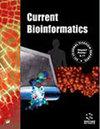SCV Filter: A Hybrid Deep Learning Model for SARS-CoV-2 Variants Classification
IF 2.9
3区 生物学
Q3 BIOCHEMICAL RESEARCH METHODS
引用次数: 0
Abstract
Background: The high mutability of severe acute respiratory syndrome coronavirus 2(SARS-CoV-2) makes it easy for mutations to occur during transmission. As the epidemic continues to develop, several mutated strains have been produced. Researchers worldwide are working on the effective identification of SARS-CoV-2. Objective: In this paper, we propose a new deep learning method that can effectively identify SARSCoV- 2 Variant sequences, called SCVfilter, which is a deep hybrid model with embedding, attention residual network, and long short-term memory as components. Methods: Deep learning is effective in extracting rich features from sequence data, which has significant implications for the study of Coronavirus Disease 2019 (COVID-19), which has become prevalent in recent years. In this paper, we propose a new deep learning method that can effectively identify SARS-CoV-2 Variant sequences, called SCVfilter, which is a deep hybrid model with embedding, attention residual network, and long short-term memory as components. Results: The accuracy of the SCVfilter is 93.833% on Dataset-I consisting of different variant strains; 90.367% on Dataset-II consisting of data collected from China, Taiwan, and Hong Kong; and 79.701% on Dataset-III consisting of data collected from six continents (Africa, Asia, Europe, North America, Oceania, and South America). Conclusion: When using the SCV filter to process lengthy and high-homology SARS-CoV-2 data, it can automatically select features and accurately detect different variant strains of SARS-CoV-2. In addition, the SCV filter is sufficiently robust to handle the problems caused by sample imbalance and sequence incompleteness. Other: The SCVfilter is an open-source method available at https://github.com/deconvolutionw/ SCVfilter.SCV滤波器:一种用于SARS-CoV-2变体分类的混合深度学习模型
背景:严重急性呼吸综合征冠状病毒2(SARS-CoV-2)的高易变性使其在传播过程中容易发生突变。随着疫情的继续发展,已经产生了几种变异菌株。世界各地的研究人员正在努力有效识别SARS-CoV-2。目的:本文提出了一种能够有效识别SARSCoV- 2变异序列的深度学习新方法——SCVfilter,它是一种以嵌入、注意残差网络和长短期记忆为组成部分的深度混合模型。方法:深度学习可以有效地从序列数据中提取丰富的特征,这对近年来流行的2019冠状病毒病(COVID-19)的研究具有重要意义。本文提出了一种能够有效识别SARS-CoV-2变异序列的深度学习新方法——SCVfilter,它是一种以嵌入、注意残差网络和长短期记忆为组成部分的深度混合模型。结果:在由不同变异菌株组成的Dataset-I上,SCVfilter的准确率为93.833%;来自中国、台湾和香港的数据在Dataset-II上占90.367%;在Dataset-III上占79.701%,包括来自六大洲(非洲、亚洲、欧洲、北美、大洋洲和南美洲)的数据。结论:利用SCV过滤器对冗长、高同源性的SARS-CoV-2数据进行处理时,可自动选择特征,准确检测出不同的SARS-CoV-2变异株。此外,SCV滤波器具有足够的鲁棒性,可以处理由样本不平衡和序列不完整引起的问题。其他:SCVfilter是一种开源方法,可在https://github.com/deconvolutionw/ SCVfilter上获得。
本文章由计算机程序翻译,如有差异,请以英文原文为准。
求助全文
约1分钟内获得全文
求助全文
来源期刊

Current Bioinformatics
生物-生化研究方法
CiteScore
6.60
自引率
2.50%
发文量
77
审稿时长
>12 weeks
期刊介绍:
Current Bioinformatics aims to publish all the latest and outstanding developments in bioinformatics. Each issue contains a series of timely, in-depth/mini-reviews, research papers and guest edited thematic issues written by leaders in the field, covering a wide range of the integration of biology with computer and information science.
The journal focuses on advances in computational molecular/structural biology, encompassing areas such as computing in biomedicine and genomics, computational proteomics and systems biology, and metabolic pathway engineering. Developments in these fields have direct implications on key issues related to health care, medicine, genetic disorders, development of agricultural products, renewable energy, environmental protection, etc.
 求助内容:
求助内容: 应助结果提醒方式:
应助结果提醒方式:


